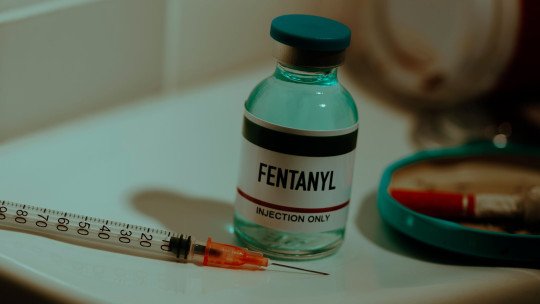Fentanyl, a powerful synthetic opioid, has become one of the biggest challenges in public health today due to its high potency and significant risk of addiction and overdose Its pain-relieving ability is approximately 50 to 100 times greater than that of morphine, making it useful in the management of severe pain, especially in palliative care settings.
However, its addictive potential and the ease with which it can lead to accidental overdose make it extremely dangerous. Although it should be noted that in Spain it is currently far from being a problem and is not comparable with what happened in the US, since in Spain the public health system and the strict controls to which this substance is subject make it difficult for it to reach the black market.
What is fentanyl and what are its risks?
Fentanyl works by binding to opioid receptors in the brain, increasing dopamine levels and producing states of euphoria and intense relaxation. While this characteristic makes it valuable in the treatment of severe pain, it also contributes to its high potential for abuse and dependence. Fentanyl addiction develops when continued use of the drug alters brain chemistry, leading to a compulsive need to use the drug to feel pleasure or avoid discomfort
The risks associated with fentanyl are significant. The line between therapeutic dose and lethal dose is extremely fine, making the risk of overdose considerably high. Additionally, fentanyl is often mixed with other illegal drugs, further increasing the risk of serious adverse effects, including death.
Fentanyl addiction can manifest through various symptoms and behaviors, including the inability to stop using the substance despite obvious health and social problems, changes in sleeping habits, social isolation, and neglect of responsibilities. The presence of these signs may indicate serious dependence and the need for professional treatment, the sooner the better
Overcoming fentanyl addiction
The path to recovery from fentanyl addiction is challenging but achievable, with the right support and a comprehensive approach from fentanyl addiction specialists. Treatments vary depending on individual needs, but often include:

The role of psychologists and centers specialized in addictions
Prevention plays a crucial role in the fight against fentanyl addiction. This includes education about the risks associated with opioid use and encouraging safe prescribing practices among healthcare professionals. Additionally, it is essential to promote access to treatment and support services for those at risk of addiction.
Specialized addiction treatment centers, such as MonteAlminara, offer a safe and specialized environment for recovery from addiction to fentanyl and other substances With a comprehensive approach that combines innovative therapeutic methods and a team of highly qualified professionals, these centers provide the tools and support necessary to overcome addiction and rebuild a life free of substance addictions.
Fighting fentanyl addiction not only involves overcoming physical dependence, but also addressing the psychological and emotional complexities that underlie the addiction. In this sense, addiction psychologists play a fundamental role. These professionals are trained to understand the roots of addiction, offering personalized therapies that address both the behavioral and emotional aspects of the disorder.
Through cognitive behavioral therapies, acceptance and commitment therapies, and other modalities, psychologists can help individuals develop coping strategies, improve self-esteem, and work on addiction triggers. Fentanyl addiction is a public health crisis that requires a multifaceted response that includes specialized treatment, ongoing support, education and prevention
With the right approach and support, it is possible to recover from fentanyl addiction and move toward a healthier, more fulfilling life. The key is to recognize the need for help and take the first step towards recovery.
The advantage of going to a center specialized in addictions and mental health like MonteAlminara lies in its unique approach and its team of highly qualified doctors, psychologists and therapists. This approach not only focuses on overcoming physical dependence, but also on rebuilding the individual’s life, promoting personal development and facilitating social and labor reintegration. Personalization of treatment ensures that each patient receives the specific care they need, based on their personal history, substance use pattern, and mental health needs to increase the chances of recovery and success on the path to quitting fentanyl or other opiates










